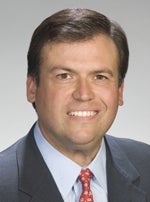Recent surveys conducted by Opinion Dynamics for the New England Energy Alliance found almost 80 percent of the region’s consumers favor competition in the electricity industry. Three out of four were found to have more confidence in companies operating under competition than under government regulation.
This sentiment is in stark contrast to a recent editorial in the Worcester Business Journal (“Deregulation: One Disastrous Disappointment,” July 21, 2008) by Shrewsbury Electric’s General Manager Thomas Josie that asserts electricity industry deregulation has resulted in consumers’ voices being “stifled.”
Apples To Oranges
This is a surprising and harsh assertion given that municipal electric utilities operate in a world insulated from competition and are exempt from many state mandated rate requirements of the Massachusetts Electricity Restructuring Act of 1997. Municipal utilities simply do not offer choice or competition to their consumers.
Most of the state’s 40 municipal utilities have relatively low electric rates because they are tax-exempt extensions of local government. Moreover, they have access to low-cost, taxpayer-subsidized federal hydropower. The state’s municipal utilities are also exempt from system benefit charges Massachusetts businesses and homeowners are mandated to pay for energy efficiency programs and the development of renewable energy resources.
Nevertheless, Mr. Josie is correct that the region has high electricity prices. But the fact is it’s too simplistic to accurately assign price increases to either regulation or competition. Electricity costs are increasing under both of these market structures — caused by underlying factors specific to each state and region.
The results of electricity industry deregulation in New England have been well documented in a number of independent studies. For example, since competitive wholesale markets commenced almost a decade ago, generating plant performance has increased dramatically, emission rates have declined and consumers have benefited from economic savings — although those savings are now being overshadowed by skyrocketing fuel costs.
The cost of fuel comprises up to 95 percent of generation costs (transmission and distribution costs remain regulated). No region of the country is escaping the impact of high fuel costs. Indeed, New England’s dependence on fossil fuels to generate electricity has proven to be especially costly.
When New England dramatically reduced its consumption of oil to generate electricity — the region substantially increased its dependence on natural gas. Today, more than 40% of the region’s electricity is generated by natural gas plants. Many of these plants were built soon after the industry was deregulated to take advantage of low capital costs, high efficiencies and low-carbon emissions. Since then, however, the price of natural gas has beyond all reasonable projections nearly tripled.
In addition to escalating fuel costs, the need for infrastructure development has contributed to higher electricity rates. The region’s aging and undersized transmission system, for example, has prevented the importation of economically priced electricity to where it is needed.
This “congestion” has led to several federally-imposed costs and increased the need to keep some uneconomical plants operating to maintain reliability. No doubt, this has been costly to the region’s consumers. On the other hand, these costs have prompted several major transmission line projects that will open up the system to more competition and cheaper electricity. For example, one transmission project that went into operation last year increased the supply of electricity into the Boston area by 25 percent.
The region also needs more electricity supply – as it is the fuel of choice in our high tech economy and lifestyle. A recently implemented market reform (after years of transparent debate and hearings) requires the region’s grid operator to project the needs of the system three years in advance and hold an annual auction to purchase needed supply resources. Initial market reaction has been positive in terms of increasing supply.
There is no question that deregulation of the region’s electricity industry is evolving and remains a work in progress. Its future is dependent on the availability of adequate infrastructure built in the competitive marketplace.
All things considered, consumers aren’t disappointed and certainly aren’t stifled. They’ve repeatedly voiced their opinion to stay the course and get the benefits of choice and competition.
Paul G. Afonso is former chairman of the Massachusetts Department of Public Utilities and current executive director of the New England Energy Alliance, a coalition of energy providers, business and trade organizations concerned about future energy supplies.

